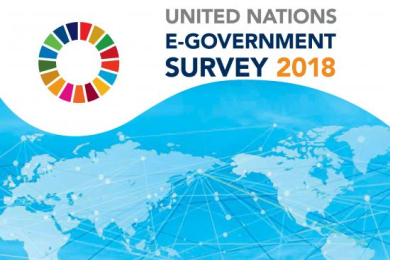E-governance plays a critical role in consolidating disaster management, disaster preparedness, and emergency relief, a new United Nations report argues. The 2018 E-Government Survey discusses how e-government can facilitate integrated policies and services across the three dimensions of sustainable development. The report, produced every two years by the UN Department of Economic and Social Affairs, is the only global report that assesses the e-government development status of the 193 UN Member States.
As stated in the report, opportunities for deploying e-government services help build inclusive, resilient societies both before and in response to disasters. Additionally, the deployment of e-government services enables access to information and communications technology during all phases of disaster risk management, offering unparalleled levels of data availability, insights and coping capabilities to support countries address this challenge and advance the implementation of the Sustainable Development Goals (SDGs). As a result, e-governance provides substantial opportunities to reduce disaster risks, enhance coping capabilities, and develop inclusive preparedness and response efforts - all attributes of e-resilience.
Furthermore, the report indicates the importance to integrate emerging innovations in digital technology, such as artificial intelligence (AI), social media, space applications and geospatial information for e-resilience efforts.
The 2018 study also focuses on local e-Government development in 40 cities across the world. This includes assessment of municipal portals of seven cities in Africa, six in the Americas, 13 in Asia, 12 in Europe, and two in Oceania with the top three leaders among them being Moscow, Cape Town, and Tallinn.
Globally, almost two thirds of 193 United Nations Members States demonstrate a high-level of e-government development. The share of countries with low e-government levels has dropped by a significant 50 percent, from 32 countries to 16 countries in 2018.

